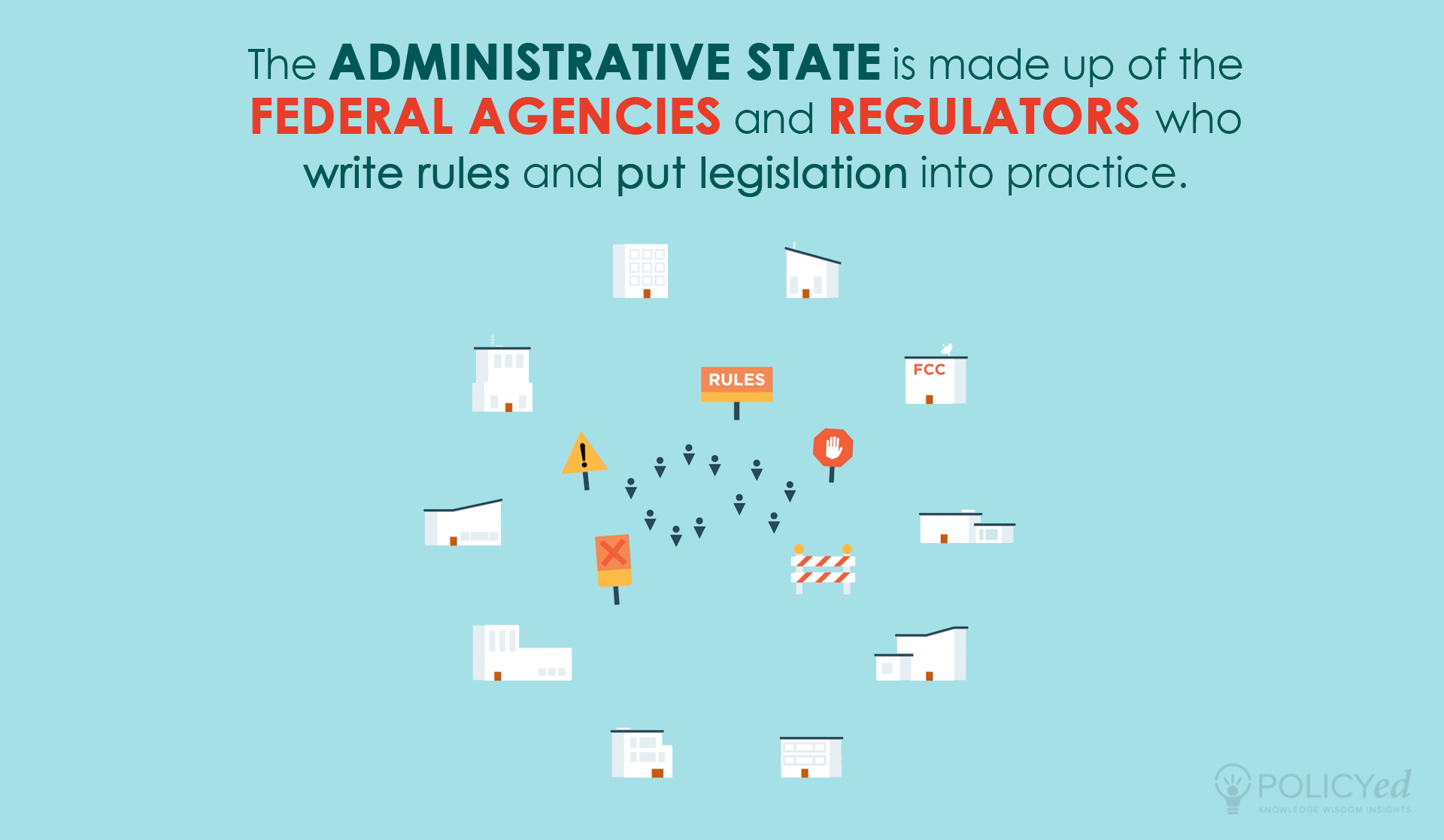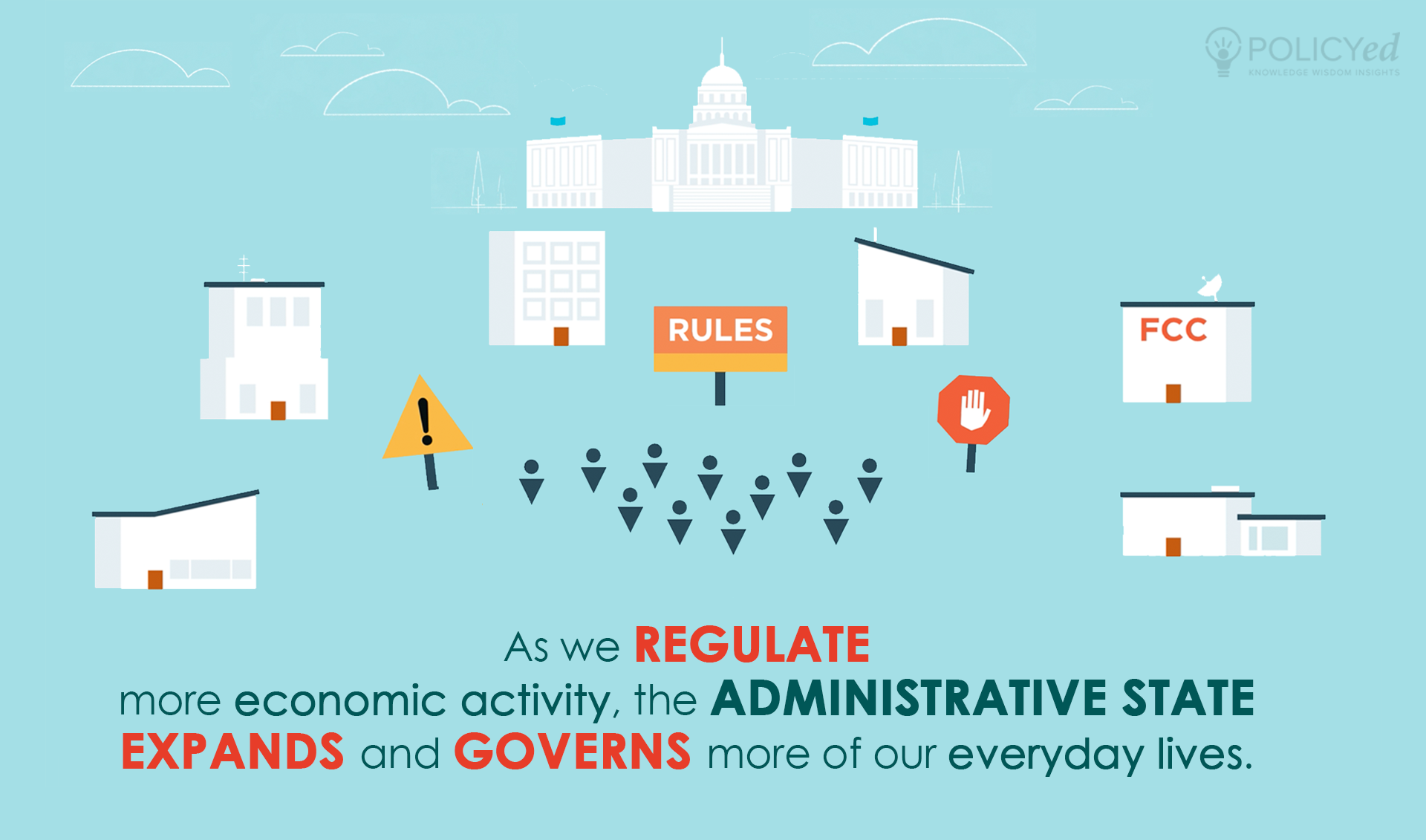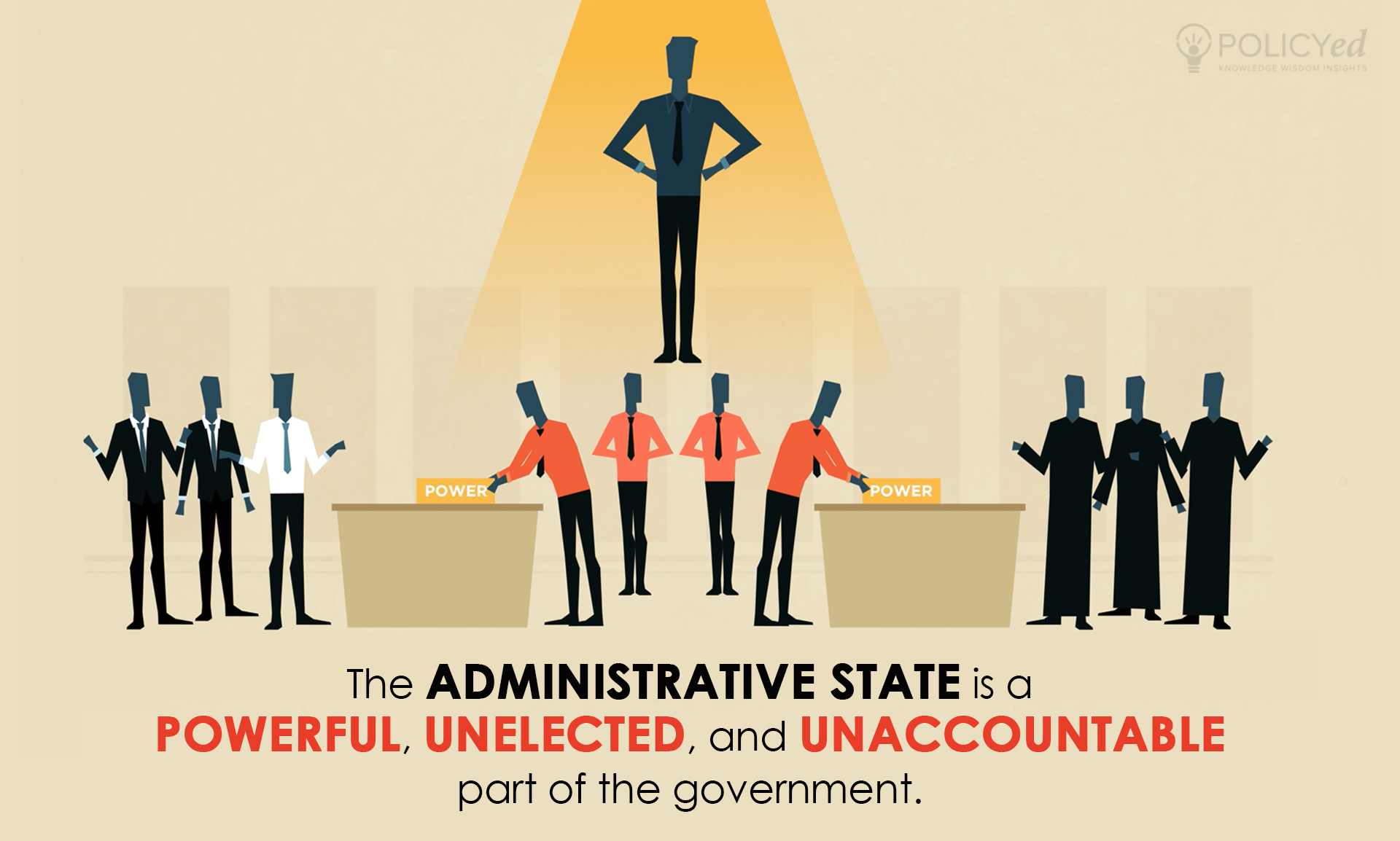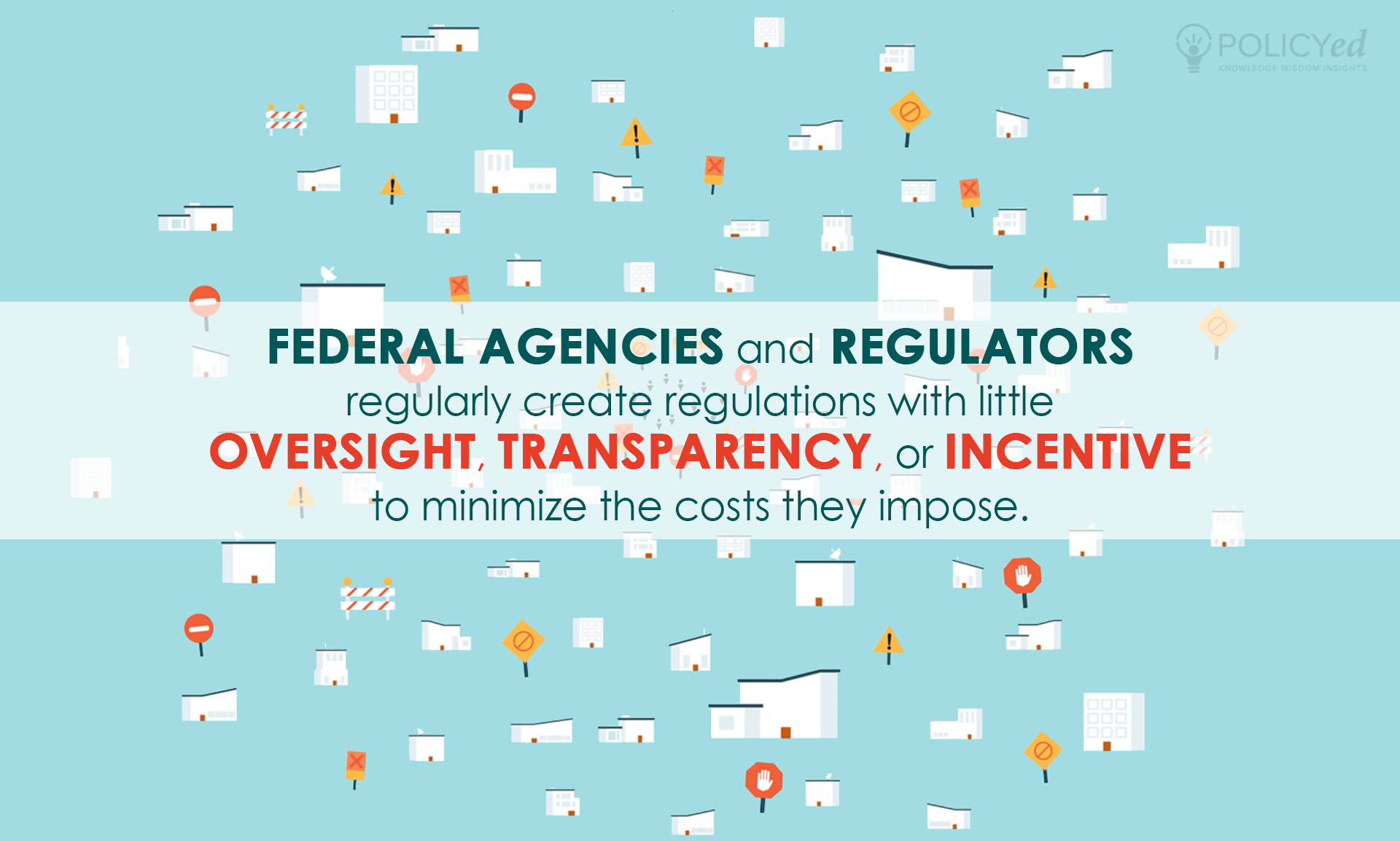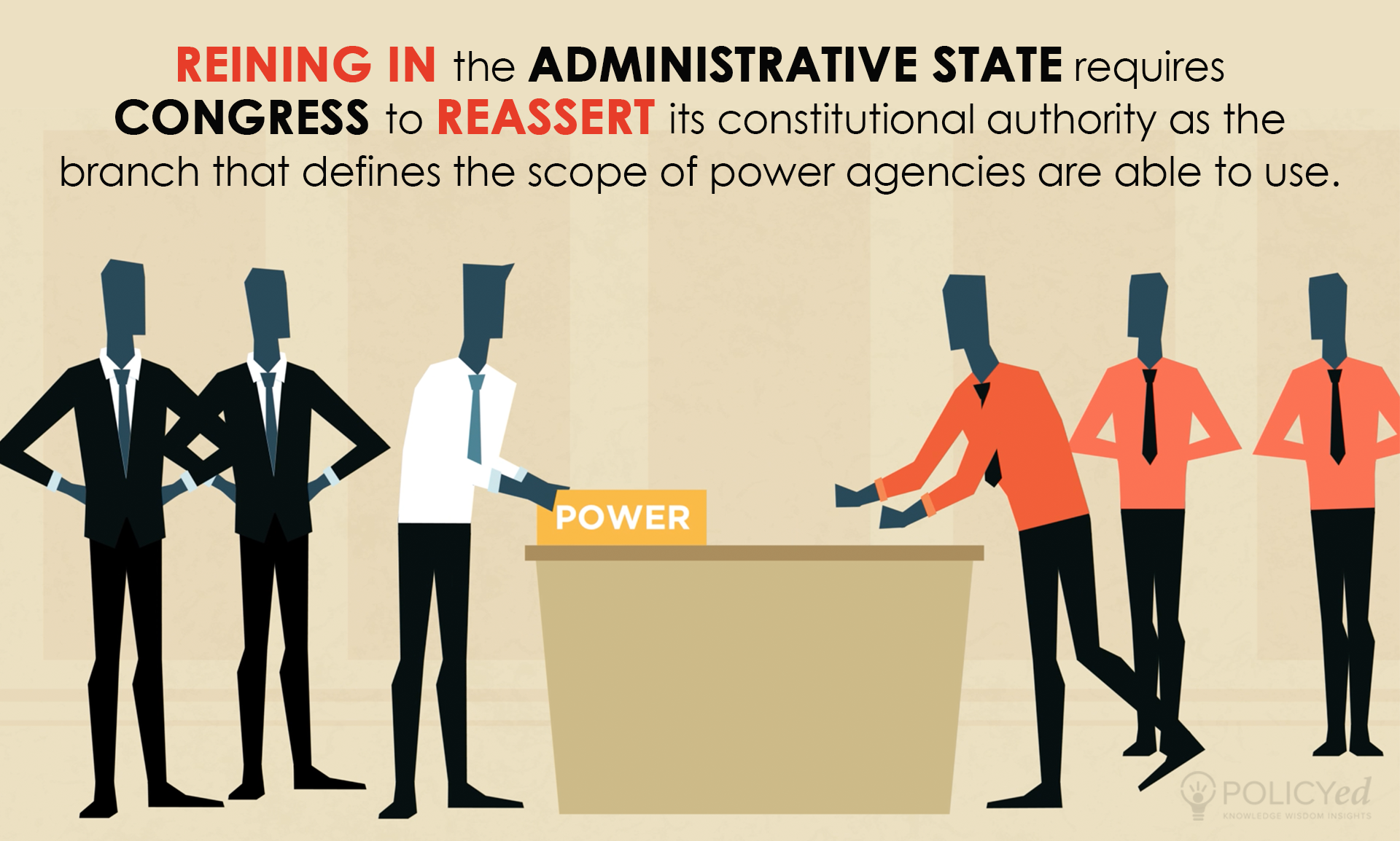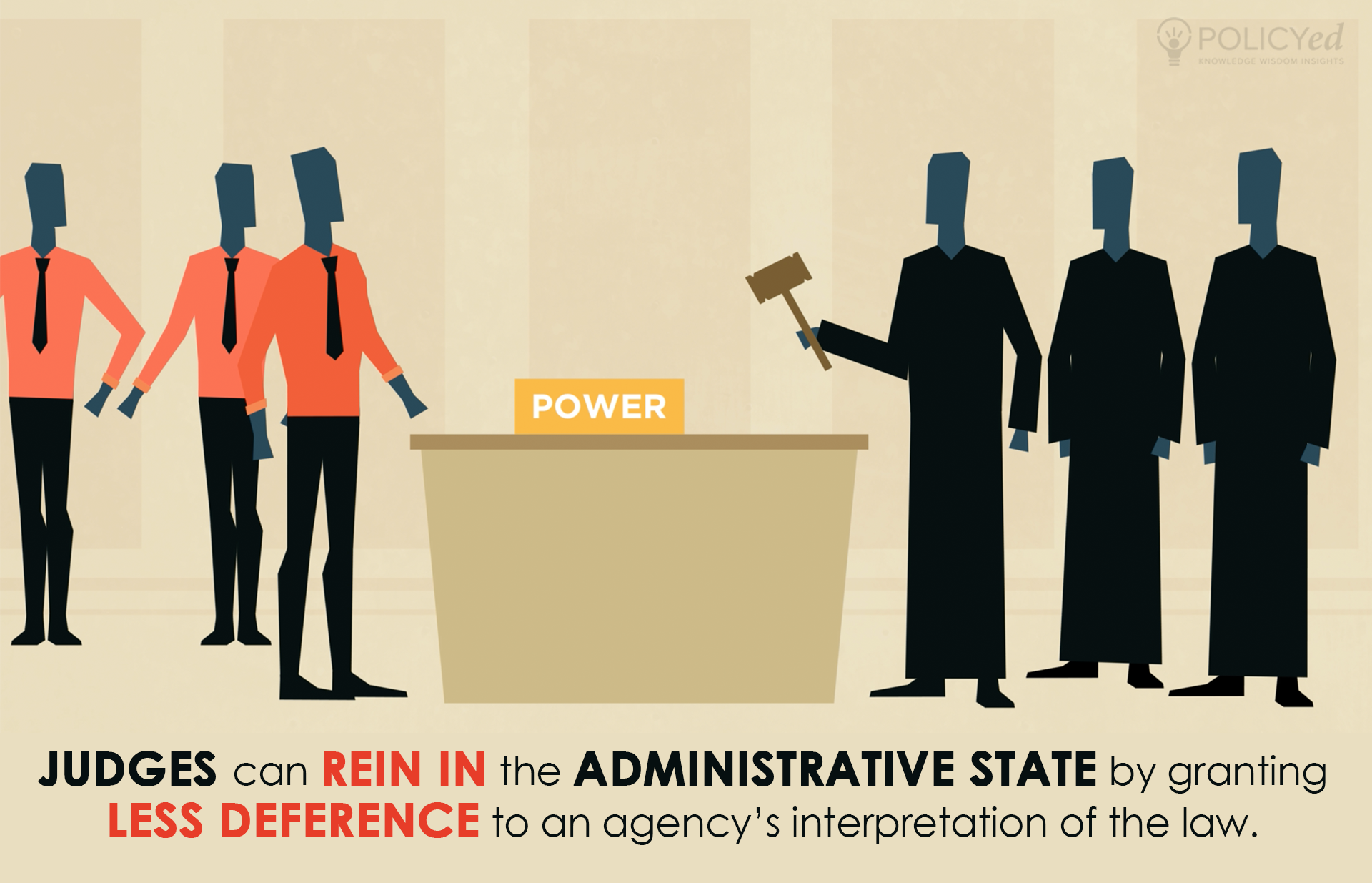Key Facts
Power of the Administrative State
From environmental policy to the Internet to the exercise of religion, many of the nation’s most significant policy choices and value judgments are now made by unelected regulators and bureaucrats, not Congress. Federal agencies have become the government’s predominant lawmakers and policymakers.
Lack of Answerability
The purpose of federal agencies is to help the government administer and enforce the law. But in modern times, the “administrative state” has expanded so much that these federal agencies wield immense power and broad discretion, with little accountability, oversight, or constitutional authority.
Judges: Limiting the Administrative State Power
In order to rein in the administrative state, judges also have to be more skeptical of an agency’s interpretation of laws – especially when the agency fails to consult with the individuals, businesses, and other stakeholders affected by its regulations.

